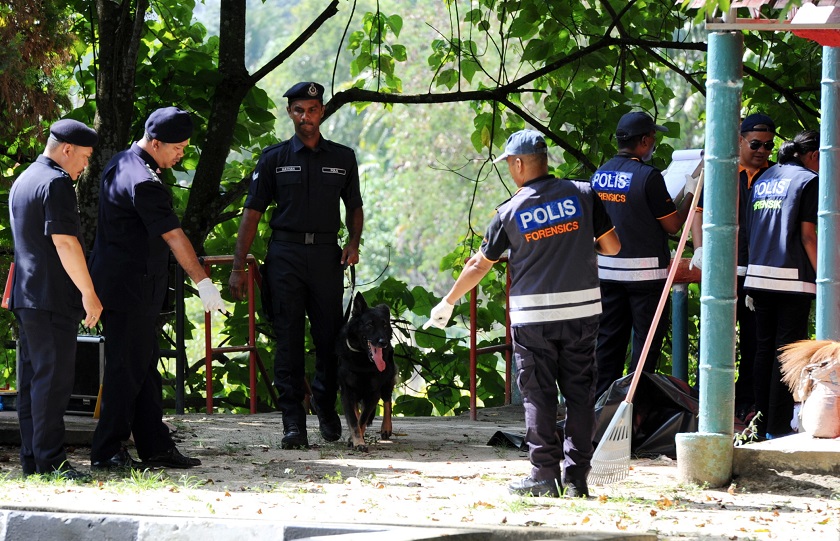KUALA LUMPUR, March 14 ― News of a chef and his son charged with murder over the death of a would-be robber who broke into their Seremban home on February 24 have sparked heated debate on social media.
Many Internet users see the incident as an act carried out in self-defence, but their arguments were based more on their emotions than what is grounded in law.
It begged the question: are there laws that clearly define what self-defence is? If there are, why are Mo Yi Hong and his son Wei Qiang facing the death penalty for the alleged crime?
Lawyers interviewed by the Malay Mail Online said the issue is well-defined in the Penal Code, under the subsection on private defence.
Section 100 of the Penal Code states that anyone who faces the risk of death, rape, sodomy or grave injury by actions of his or her assailant, has the right to protect him or herself even if it results in the death of the assailant. The law also covers the right to defend one's property.
The grey area concerns the amount of force used in defence.
Because this particular law also states that this right cannot be applied as a pretence for justifying aggression for causing harm to another person, nor for causing more harm than is necessary to inflict for the purpose of self-defence.
“The force used must be proportionate to the danger one is facing… for example if you have already managed to overpower your assailant, doesn't mean you can go on beating or hacking that person,” criminal lawyer Amer Hamzah Arshad said when contacted.
On the Internet, those on the side of the elder Mo and his 28-year-old son pointed out reports of the burglar slashing at the chef’s wife as justification for the family’s retaliation against their assailant.
Which brings to question, if a person's loved one was hurt by the assailant, doesn't that person have the right to assume that the assailant is capable of extreme action that could result in murder and therefore warrants an extreme reaction?
According to Amer, whether or not such reaction will be considered self-defence in court depends very much on the situation at hand.
“It all depends really… if say, he comes into your house with a machete and you took out your machete and when he attacks, you react, he dies, that is self defence.
“But if say, you have already overpowered him, but you keep on hacking at him, that is not self-defence anymore,” he said.
While the public continues to debate this niggling issue of self-defence, the courts have past precedents that clearly define what it is, and what it is not.
The 1971 case of Munney Khan vs the State is an oft-cited legal case here, with the Supreme Court of India ruling that the right of private defence should not be allowed to be pleaded or availed as a pretext for a vindictive, oppressive, or retributive purpose.
Another frequently cited judgment closer to home, in the 1956 case of Public Prosecutor vs Manap, states that the complainant was not entitled to private defence as the retaliation he made was on a much larger scale and more serious that could possibly be justified.
Sadly, news reports in the ongoing murder trial of the Negri Sembilan father-and-son duo have shed little light as to what transpired that night, apart from the fact that Mo's wife Guo Shu Lan was slashed and their assailant was later tied up.
Guo was reported to have received 25 stitches on her arm.
She was also reported to have said the burglar was still conscious when her husband and son tied him up, adding that the assailant’s death was a mystery.
Former criminal lawyer Datuk Geethan Ram Vincent concurred with Amer that it would not be wise to preempt the court in deciding on whether or not Mo senior and his son had passed that thin line of justifiable self-defence.
But Geethan said that the prosecutor would have acted based on the available evidence and only pressed the charge after being convinced the act went beyond self-defence.
“At this stage, we do not know the facts. It’s all facts dependant.
“To be able to charge them, the public prosecutor must be convinced they have crossed the line,” Geethan told Malay Mail Online.
Sympathetic Malaysians took to social media and vented their anger and dissatisfaction upon learning that the chef and his son face the mandatory death penalty if convicted of murdering Chen Wen Bao.
Many said they would have done the same thing if dealt with the same situation and called the charge unjust.




















